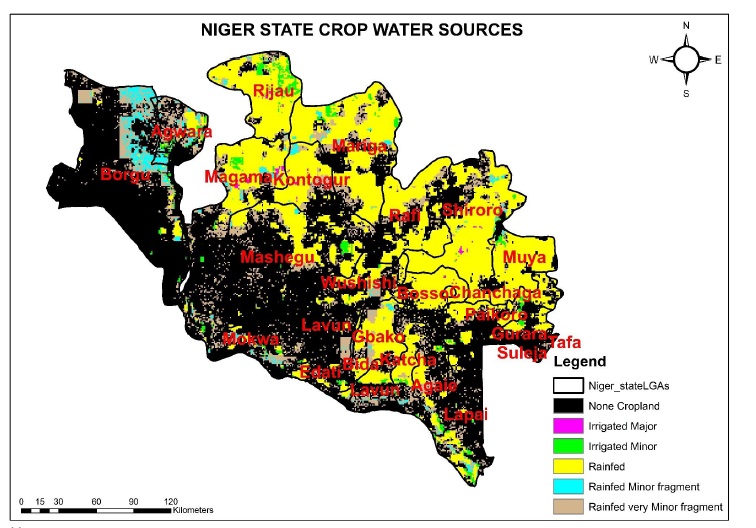Niger State Crop Water Sources
Niger State, located in north-central Nigeria, relies on several water sources to support its agricultural activities. The primary sources include:
Rivers and Dams: The Niger River, one of Africa’s major rivers, traverses the state and serves as a crucial water source for irrigation. Significant dams such as the Kainji, Jebba, and Shiroro dams have been constructed along the Niger and Kaduna rivers. These dams facilitate irrigation, hydroelectric power generation, and water supply, thereby supporting agricultural activities in the region.
Rainwater Harvesting: Given the seasonal nature of rainfall in the Sahel region, traditional rainwater harvesting techniques are employed to extend water availability for crops. Methods such as constructing small-scale artificial ponds (bouli), building stone bunds to minimize runoff, and creating planting pits (zaï or tassa) to capture and retain rainwater are utilized to enhance soil moisture and support crop growth during dry periods.
Groundwater Resources: Farmers also tap into groundwater through wells and boreholes to irrigate their crops, especially during the dry season when surface water sources may be insufficient. This practice is particularly prevalent in areas where access to river water is limited.
To improve water management and agricultural productivity, initiatives like the Niger State Special Agro-Processing Zone (SAPZ) have been established. These programs focus on developing modern irrigation systems and providing advanced irrigation technologies to farmers, ensuring efficient water use and reducing wastage.
By leveraging these diverse water sources and implementing sustainable water management practices, Niger State aims to enhance its agricultural output and support the livelihoods of its farming communities.
